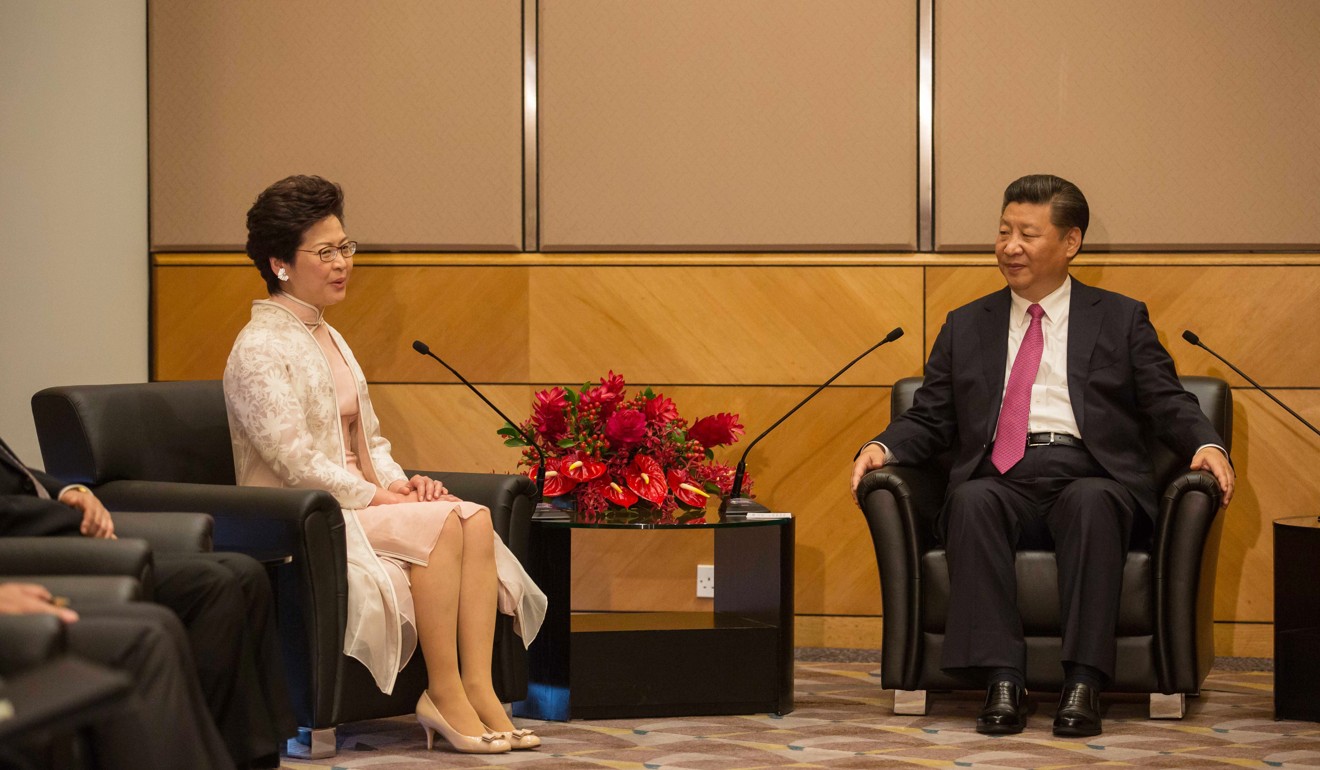
President Xi Jinping’s four key points for moving forward under ‘one country, two systems’
State leader delivers clearest message yet on understanding unique political model for relationship between Hong Kong and mainland China
Noting that new challenges had arisen from the application of the principle, such as the need to nurture national identity in the people, a split in opinions on major political and legal issues, and the city’s housing shortage and other economic and livelihood problems, Xi gave his views on how Hong Kong should move forward.
Here are his four key points:
1. To have a correct understanding of the relationship between “one country” and “two systems”
The paramount concept of “one country, two systems”, Xi said, is to “realise and uphold national unity”.
“In conducting day-to-day affairs, we must be guided by a strong sense of ‘one country’ … and thus correctly handle the relationship between the HKSAR and the central government,” he said.
Having said that, Xi noted that the two systems should “stay in harmony”. Differences between the two “should be respected”, and “at no time should we focus only on one aspect to the neglect of the other”.
Xi’s focus on the “one country” aspect of the model comes amid a debate in recent years in Hong Kong and on the mainland over whether the two halves of the one country, two systems formula carry equal weight.
Mainland scholars have argued that national interests come first, while mainstream Hong Kong pan-democrats are of the view that the city’s “core values”, such as respect for human rights, rule of law and pursuit of democracy, should not be sacrificed in favour of national development.
2. To always act in accordance with the Chinese constitution and the Basic Law of Hong Kong
The president said: “In observing the constitutional order prescribed by the constitution and the Basic Law, it is important both for the central government to exercise power in accordance with the law and for the HKSAR to fulfil its own responsibilities as the main actor.
“We should improve the relevant institutions and mechanisms for implementing the Basic Law.”
In the early years after the handover, Hongkongers were always told that the Basic Law was the source of all they needed to know about one country, two systems. The national constitution was not highlighted. Hongkongers have treated the Basic Law as their city’s own “mini-constitution” – a view disputed by former liaison office publicity director Hao Tiechuan in 2013.
But it was only in 2015 when state leaders for the first time highlighted the importance of the national constitution for Hong Kong. That year, Premier Li Keqiang said in his annual work report that the central government would strictly comply with the Chinese constitution and the Basic Law in Hong Kong affairs.

3. To always focus on development as the top priority
Xi said that the concept of one country, two systems was advanced to achieve not just the resumption of exercise of sovereignty over Hong Kong but also to “maintain [its] status as an international financial, shipping and trading centre in order to promote further growth”.
While telling people to seize economic opportunities, Xi did not mention reform for greater democracy.
4. To always maintain a harmonious and stable social environment
Noting that Hong Kong is a pluralistic society, Xi said it was no surprise that there were “major differences on some specific issues”.
In a veiled reference to the city’s pan-democratic politicians, who are often blamed for “politicising” matters, Xi said: “Making everything political or deliberately creating differences and provoking confrontation will not resolve the problems … It can only severely hinder Hong Kong’s economic and social development.”
But in what could be a surprise twist, Xi appeared to extend an olive branch to the moderate pan-democrats by indicating his willingness to communicate.
He said: “On the part of the central government, we are ready to talk to anyone who loves the country, loves Hong Kong and genuinely supports the principle of one country, two systems and the Basic Law … no matter what political views or position he or she may hold.”
Additional reporting by Tony Cheung

